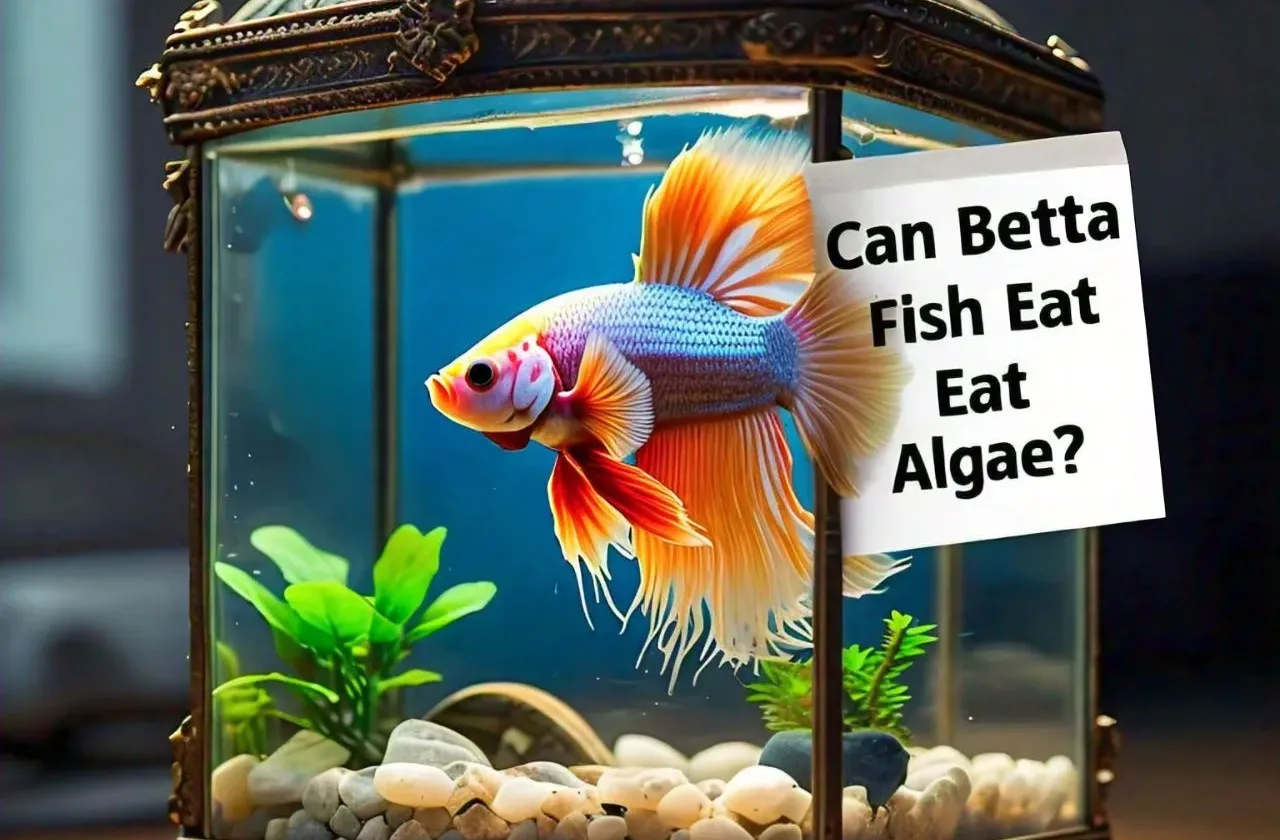Although they aren’t natural algae-eating fish, they might nibble on algae occasionally in an aquarium. This is not because they enjoy it but rather because options for food may be limited.
In a home tank, algae can sometimes serve as an additional snack for bettas, but they don’t actively hunt or rely on it as dedicated algae-eating fish or invertebrates do. Instead, bettas thrive on a diet designed for carnivores.
The Role of Algae in a Betta Fish’s Diet

Nutritional Contributions
- Algae can offer some benefits, like small amounts of vitamins and minerals, but it doesn’t provide all the nutrients bettas need. Algae do not have enough protein, bettas need food that is rich in protein, like insect-based pellets or frozen foods, to stay healthy and active.
Risks of Overreliance
- Algae don’t provide enough of the right nutrients, a diet high in algae can lead to poor health, weak immunity, and slower growth.
Why Is Your Betta Eating The Algae Wafe?
Your betta fish might be eating the algae wafer for a few reasons.
- One reason could be that the main ingredient in the wafer is a fish meal, which your betta likes.
- One reason might be that you aren’t giving your betta enough food, so it’s eating whatever it finds in the tank.
- Your betta may not want other fish or creatures in the tank to eat the wafer, so it eats it to keep it all to itself.
- Sometimes, bettas can be a bit greedy and eat more than they need.
How To Stop Your Betta Eating Algae Wafers

If your betta is eating algae wafers, you can try a few simple tricks to help stop this:
Feed Your Betta at the Same Time:
- This can help him get used to his food and ignore the algae wafers meant for other tank mates.
Separate Your Betta:
- If possible, put your betta in a separate tank or section when feeding the other fish algae wafers.
Grind Them Up:
- Crush the algae wafers into small pieces before putting them in the tank. This will make it easier for other fish to eat quickly and harder for your betta to eat.
FAQs
- How Does the Presence of Algae Affect the pH Levels?
Algae can affect the pH levels in a betta fish tank. When algae grow, they can make the water slightly more acidic or more basic depending on the type of algae and how much it is growing. This change in pH can sometimes stress betta fish because they prefer stable water conditions
- Are There Specific Types of Algae?
Types of algae, like spirulina, can be found in fish food and might be beneficial. Spirulina is a type of blue-green algae that can be good for fish, but it’s usually provided in small amounts through specially designed fish food rather than directly from algae in the tank.
- Algae Lead to Any Color Changes or Enhancements in Betta Fish Appearance?
Their color is mostly influenced by their genetics and the quality of their diet. Providing a varied diet, including foods designed to enhance their colors, is more likely to keep your betta looking vibrant and healthy.
- Is There a Risk of Betta Fish Overeating Algae?
If algae overgrowth is a problem, it can affect water quality and create conditions that might stress your betta. To manage algae, you can do regular tank cleanings, control light exposure, and use algae-eating fish or snails if necessary.
Conclusion
In conclusion, while betta fish might nibble on algae occasionally, it’s not an ideal food for them. Bettas are naturally meat-eaters and need a diet rich in protein to stay healthy. Algae doesn’t provide the right nutrients, so it shouldn’t be a main part of their diet. If your betta is eating algae wafers, try to ensure they have enough of their preferred food and consider some simple tricks to keep them from munching on algae intended for other fish.
